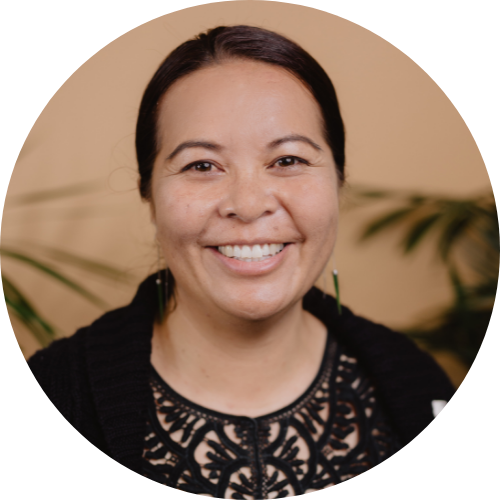The insurance industry is notorious for its reliance on complex language and jargon. MAS is aiming to change that by releasing policy documents in simple language that’s easy to understand.
By Dawn Chapman
Complicated, confusing and convoluted are a few of the words that are often used to describe insurance, but MAS is hoping to change that by rewriting its policy documents using plain language principles.
Plain language is a style of communication that aims to make information as accessible as possible, making it easy for the audience to understand the first time they read or hear it. It avoids complex language and jargon – something the insurance industry is notorious for.
This makes applying plain language to insurance both a challenge – and an opportunity.
 No one knows this better than Phil Belcher, Life and Disability Product Manager at MAS (pictured). He’s spent the past 18 months leading the project of rewriting MAS’s Professional Life Plan and Income Security policy documents to make them easier to understand.
No one knows this better than Phil Belcher, Life and Disability Product Manager at MAS (pictured). He’s spent the past 18 months leading the project of rewriting MAS’s Professional Life Plan and Income Security policy documents to make them easier to understand.
Through the process, he’s come to believe that plain language is primarily about education and helping MAS Members understand their insurance as completely as possible.
It’s all about transparency
“Our policy documentation, our technical language, and ultimately our industry have been accused of being complicated and confusing. We need to become more transparent, and actively engage our Members – including what we do and don’t cover them for – to help develop greater levels of trust. Our goal is to be as transparent as we possibly can,” says Phil.
This goal is a timely one, as a Plain Language Bill was introduced to Parliament in September 2021. The purpose of the Bill is to improve the effectiveness and accountability of the public service by requiring their communications to be clear and accessible to the public.
Literacy figures released in 2020 found just 16% of New Zealand adults are considered to have high levels of literacy. The research cites unfamiliar subject matter and jargon as exacerbating factors. Phil says these factors, especially when coupled with poor computing skills or English as a second language, make the need for clarity in the insurance industry even more urgent.
Making insurance accessible
When it comes to insurance, the challenge in using plain language lies in clarifying complex terms, Phil says.
“Insurance documents often use jargon to describe complex legal ideas, and getting these concepts across in simple language can be difficult,” he says. Rewriting these terms using simplified wording without losing their original intent required special care.
The team also worked hard to ensure that Members who already have insurance with MAS wouldn‘t be inadvertently disadvantaged by the update.
“We had to convert what we’ve already got while keeping the intent and terms and conditions the same,” Phil says.
It’s about more than just readability
The new documents use a variety of techniques to improve their readability without compromising their intent. As well as simplified language that replaces jargon with common terms, the documents have been redesigned and restructured with the reader’s needs in mind.
“We wanted to go beyond just words in our new policy documents because our whole drive is about making it easier for our Members to understand what they’ve got. We haven’t created the document to be read end to end,” Phil says.
“I think that was the most important decision we made early on. Our research showed that Members don’t read policy documents like a brochure – they’re more likely to look for specific information, such as how to make a claim or what they are covered for. We also added a lot of white space, helpful tips and have used graphics and examples throughout the documents to enhance readability and transparency of what’s covered.
“MAS is committed to a plain language journey. This will make it easier for our Members to be clear about what they are and aren’t covered for and to have a greater understanding of their options, ensuring they have the most suitable solution for their needs.”
And this is just the start
Rewriting policy documents is just the first step on MAS’s journey to clearer communication. With the goal to make insurance more transparent for a wider range of people, discussions are now underway to review how MAS can incorporate te reo Māori into more of its communications.
 It’s a move supported by Anahera Brown, Marketing Communications Manager at MAS (pictured). “It’s about being inclusive. Te reo Māori is an official language of Aotearoa, so you should have the ability to choose to read information in te reo if you prefer.”
It’s a move supported by Anahera Brown, Marketing Communications Manager at MAS (pictured). “It’s about being inclusive. Te reo Māori is an official language of Aotearoa, so you should have the ability to choose to read information in te reo if you prefer.”
Anahera says MAS has published significant parts of the MAS Annual Report and the MAS Foundation’s Annual Report in both English and te reo.
“We’ve also done some work internally to help our people feel more comfortable using te reo in their daily work, including pronunciation classes, translating job titles into te reo and developing a resource called Te Reo Inihua (The Language of Insurance) that translates commonly used insurance terms into te reo.
“One of our goals is to continue to look for opportunities to develop bilingual insurance guides and documentation. It’s all part of working out how we can do our bit to help Aotearoa give effect to te Tiriti o Waitangi.”
Know someone who might enjoy this?
Professional life
See all-
March 2021
Made for today a century ago
-
March 2021
The great brain gain
-
March 2021
A hectic, horrific working holiday
-
March 2021
Smooth sailing for Southern Spars



